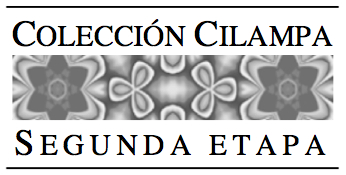Papiamentu and the Brazilian Connection Established through the Sephardic Jews
DOI:
https://doi.org/10.15359/rl.1-67.4Keywords:
Papiamentu, Brazilian Portuguese, origins of Papiamentu, Sephardic JewAbstract
This study examines the linguistic contact between Papiamentu and Brazilian Portuguese established when the Sephardic Jews were expelled from Dutch Brazil and some of them relocated in Curaçao. Three lexical items of PA (yaya, ‘nanny, nursemaid’; bacoba, ‘banana’; and fulabola‘fore nger, index nger’) are analysed and put into their historical contextto show that their presence in Papiamentu can be attributed to the contact between Brazil and Curaçao due to the forced migration of the Sephardic Jews and their servants.
References
Buarque de Holanda Ferreira, Aurélio. Novo dicionário eletrônico da língua portuguesa. Rio de Janeiro: Nova Fronteira, 2009.
Câmara Cascudo, Luís da. Dicionário do folclore brasileiro. Rio de Janeiro: Ediouro, 2003. DOI: https://doi.org/10.2307/335622.
Duarte, Rojane. “A origem e o significado de iaiá.” Ciberdúvidas da língua portuguesa, 2007, 30 Nov 2017, <https://ciberduvidas.iscte-iul.pt/consultorio/perguntas/a-origem-e-o-significado-de-iaia/20689>.
Goodman, Morris. The Portuguese Element in the American Creoles. Honolulu: University of Hawaii Press, 1987.
Holm, John. An Introduction to Pidgins and Creoles. Cambridge: Cambridge University Press, 2000. DOI: https://doi.org/10.1017/CBO9781139164153.
Houaiss, Antônio. Dicionário eletrônico Houaiss da língua portuguesa. 3.0. Rio de Janeiro: Objetiva, 2009. DOI: https://doi.org/10.11606/d.8.2009.tde-30112009-151358
Jacobs, Bart. “The Upper Guinea Origins of Papiamentu Linguistic and Historical Evidence.” Diachronica 26, 3 (2009). DOI: https://doi.org/10.1075/dia.26.3.02jac.
Jacobs, Bart. Origins of a Creole: The History of Papiamentu and its African Ties. Berlin: De Gruyter, 2012. DOI: https://doi.org/10.1515/9781614511076.
Johnen, Thomas. “Frederiks, Bernardus Th. J. (2009 [1859]): Woordenlijst der in der landstaal van Curaçao meest gebruikelijke woorden; alphabetisch neu geordnet mit dem heutigen Sprachstand verglichen und etymologisiert von Johannes Kramer, Hamburg: Buske (Kreolische Bibliothek; 22),” Lusorama 97-98 (2014): 254-265.
Johnen, Thomas. Bakoba pa makaku: Sobre a problemática dos africanismos na lexicografia do Papiamentu (2014), manuscript.
Karner, Frances P. The Sephardics of Curacao: A Study of Socio-Cultural Patterns in Flux. Assen: Van Gorcum, 1969.
Kouwenberg, Silvia. “Papiamentu Structure Dataset,” Atlas of Pidgin and Creole Language Structures Online. Leipzig: Max Planck Institute for Evolutionary Anthropology, 29 Jan 2017, <http://apics-online.info/contributions/47>.
Kramer, Johannes. Kleines etymologisches Wörterbuch Papiamento-Deutsch Deutsch-Papiamento. Hamburg: Buske, 2013.
Martinus, Frank. The Kiss of a Slave: Papiamentu’s West-African Connections. Amsterdam: Universiteit van Amsterdam, 2004.
Pessoa de Castro, Yeda. Falares africanos na Bahia: Um vocabulário afro-brasileiro. Rio de Janeiro: Topbooks, 2001.
Ratzlaff, Betty. Papiamentu/Ingles dikshonario, English/Papiamentu Dictionary. Kralendijk: TWR Dictionary Foundation/Science Press, 1995.
Rossel, Gerda. Taxonomic-Linguistic Study of Plantain in Africa. Leiden: Research School CNWS, 1998.
Rupert, Linda M. Creolization and Contraband: Curaçao in the Early Modern Atlantic World. Athens, Georgia: University of Georgia Press, 2012. DOI: https://doi.org/10.1111/ tla.12005_4.
Salles, Vicente. Vocabulário crioulo: contribuição do negro ao falar regional amazônico. Belém: Instituto de Artes do Pará, 2003.
Van Putte, Florimon. “Dede Pikina, de Braziliaanse Connectie En de Yaya,” Kristòf XII, 4 (2003).
Published
How to Cite
Issue
Section
License
Principios básicos:
a) Los autores conservarán los derechos de propiedad intelectual de sus aportes o artículos;
b) Cada autor deberá indicar expresamente que ese artículo lo entrega, en calidad de exclusividad, a la revista LETRAS; y
c) La revista Letras se reservará el derecho de autorizar para fines académicos no lucrativos la reproducción y uso de ese material por parte de terceros, siempre que éstos indiquen expresamente la procedencia del artículo. Todo ello se postula en concordancia con la normativa de "Creative Commons Atribution License", recomendada.

This work is licensed under a Creative Commons Attribution-NonCommercial-NoDerivs 3.0 Costa Rica License.















